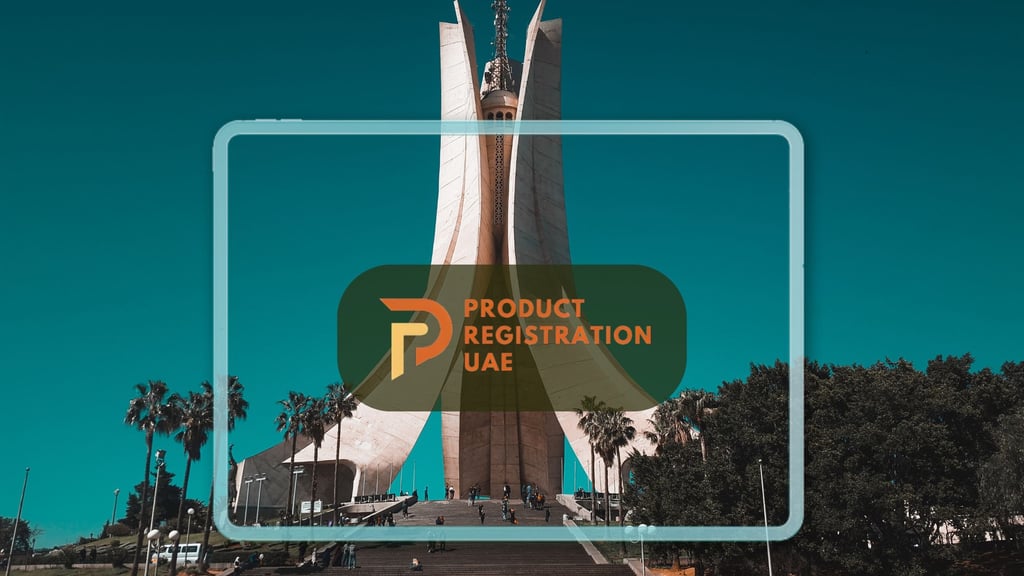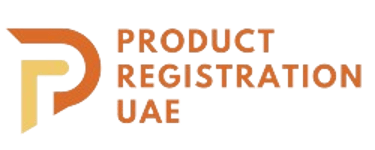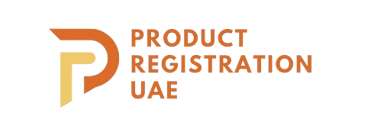Algeria Complete Regulatory Guide
Navigate Algeria's product registration process with ease. Learn essential steps, regulatory insights, and how Product Registration UAE can help you.
8/15/20245 min read


Navigating Algeria’s Regulatory Landscape
Why Understanding the Regulatory Framework Matters
Breaking into the Algerian market requires a thorough understanding of its regulatory framework.
Algeria, like many countries in North Africa, has developed stringent regulations to safeguard consumer safety and product quality.
Whether you are dealing with food products, cosmetics, medical devices, or pharmaceuticals, you need to familiarize yourself with the local requirements to avoid costly delays and ensure a smooth registration process.
But don’t let that intimidate you! The rewards of entering this promising market can be significant. With a population of over 44 million people, Algeria represents a substantial opportunity for businesses across various sectors.
Who Governs Product Registration in Algeria?
Key Regulatory Authorities You Should Know
The regulatory environment in Algeria is overseen primarily by the Ministry of Health, Population, and Hospital Reform (MSPRH). This ministry has several key departments and agencies working together to regulate various categories of products:
1. Directorate of Pharmacy and Health Equipment (DGPES)
This directorate is responsible for the evaluation and regulation of pharmaceuticals and medical devices.
2. National Agency for Pharmaceutical Products (ANPP)
Established in 2018, the ANPP plays a crucial role in overseeing the quality, safety, and efficacy of medical products. It works closely with the DGPES to manage market authorizations.
3. National Laboratory for the Control of Pharmaceutical Products (LNCPP)
This laboratory conducts quality control tests for pharmaceuticals and medical devices. The LNCPP ensures that products entering the Algerian market meet the country's stringent standards.
Step-by-Step Guide to Product Registration in Algeria
Before diving into the registration steps, remember that Product Registration UAE can handle the entire process for you.
From account creation to navigating the complex documentation requirements and paying the fees, we ensure a hassle-free experience.
Our experts stay updated with the latest regulations and guide you through every step, allowing you to focus on your business.
Contact us today to streamline your product registration journey in Algeria! Or just use our Chatbot on the bottom right corner and will get back to you as soon as possible.
Returning to the Steps for some knowledge:
Step 1: Creating an Account
Your journey starts by creating an account on the Ministry of Health's online portal. This may seem straightforward, but it's crucial to ensure that all your company details, including licenses and any previous regulatory registrations, are accurately entered.
Any inaccuracies or missing information at this stage can result in delays later on. Additionally, international companies often need to appoint a local representative to communicate with Algerian authorities, which can require significant preparation if your business isn’t yet established in the country.
Step 2: Gathering Documentation
Gathering the necessary documentation is a detailed and meticulous process. You’ll need to provide comprehensive information about your product, including:
- Product Specifications: Name, description, and images.
- Manufacturing Details: In-depth information about the manufacturing process, including flow diagrams and facility certifications.
- Quality Control and Safety Data: Certificates of analysis, test results, and proof of quality assurance.
For medical devices, you’ll also need additional documents like a CE certificate, Declaration of Conformity, and risk analysis reports. Keep in mind that all documents must be translated into French or Arabic, depending on the regulatory requirements.
Step 3: Submitting Your Application
Submitting the application is more than just uploading files. You’ll need to fill out forms that are specific to your product category, ensuring that every detail aligns perfectly with your supporting documentation.
Incomplete or mismatched information could result in delays or outright rejection. If your product spans multiple categories, such as pharmaceuticals that also include medical devices, you may need to submit separate applications for each category, further complicating the process.
Step 4: Paying the Fees
Registration fees in Algeria vary based on the product category, classification, and the level of regulatory scrutiny required.
For pharmaceuticals, fees typically range from DZD 5,000 to DZD 15,000. Medical device fees depend on the classification of the device (Class I, IIa, IIb, III), with higher-risk products incurring higher fees.
There may also be additional costs for laboratory testing or site inspections. It’s essential to stay updated with the latest fee structure to avoid unexpected costs, as non-payment can lead to delays in processing.
Step 5: The Approval Process
Once your application and fees are submitted, the Ministry of Health reviews your submission. This process can involve:
- Laboratory Testing: Products may be subject to further testing by the National Laboratory for the Control of Pharmaceutical Products (LNCPP) to ensure safety and efficacy.
- Site Inspections: For certain products, especially high-risk items like pharmaceuticals or medical devices, inspections of your manufacturing facilities may be required.
- Requests for Additional Information: The Ministry may request additional documentation or clarification, especially if your product falls under a new or updated regulation.
Approval timelines can vary, ranging from weeks to several months, depending on the complexity of your product and the volume of applications being processed. Mistakes or delays in responding to requests can extend this timeline significantly.
Overcoming Common Challenges
Regulatory Complexity
Algeria's regulatory framework can be intricate, especially for businesses unfamiliar with the region. Navigating the various requirements for different product categories can be daunting, but partnering with regulatory consultants who specialize in the Algerian market can significantly smooth the process.
Language Barriers
All documentation must be submitted in French or Arabic, which can pose challenges for international businesses. Hiring a professional translation service is a smart investment to ensure that your documents are properly prepared and accepted by Algerian authorities.
Staying Informed
Regulations in Algeria are subject to change, and staying informed about the latest developments is crucial. Regularly consult official government websites or partner with a local expert who can keep you updated on any new regulations or fee adjustments.
The Importance of Compliance and Certification
Why GMP and ISO Certifications Matter
Good Manufacturing Practice (GMP) certification and ISO 13485 certification for medical devices are often mandatory for products entering the Algerian market. These certifications demonstrate your commitment to quality and safety, which are key concerns for Algerian authorities.
In addition to these certifications, be prepared to provide detailed quality management documentation, including employee training records and product testing data. Ensuring compliance with these standards is not just a legal requirement—it also helps build trust with consumers in the Algerian market.
Fee Structure and Financial Considerations
Understanding the fee structure is essential for budgeting your product launch in Algeria.
Fees can vary widely depending on the type of product and its complexity. For instance:
- Pharmaceuticals: Registration fees can range from DZD 5,000 to DZD 15,000, depending on the drug's classification and the required assessments.
- Medical Devices: Fees are determined by the device's classification (Class I, IIa, IIb, III). It's important to consult the Ministry of Health's official resources or work with a local expert (Like Us) to get the latest fee schedule.
Conclusion
Successfully registering products in Algeria requires diligence, proper documentation, and a solid understanding of the regulatory landscape.
By following the outlined steps and addressing common challenges, businesses can secure a foothold in this promising market.
Continue Reading:
Explore our guide on Egypt product registration to expand your business into another key North African market.
If you’re looking to expand into other regions, don’t miss our Complete Guide to Product Registration in Saudi Arabia for more insights into navigating Middle Eastern markets.
Assorted beverages and packaged foods symbolizing UAE sugar-based excise tax compliance for 2026.


